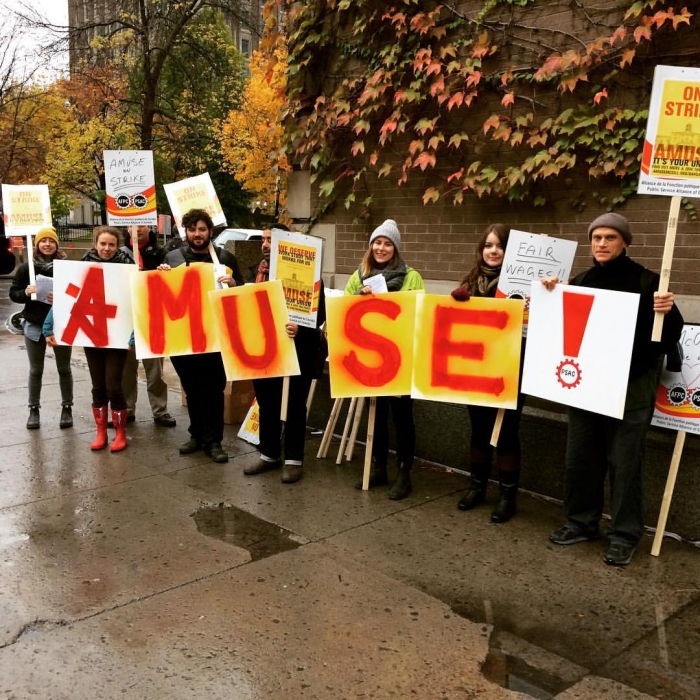Two years of negotiations conclude in agreement
On the night of Jan. 9, members of the Association of McGill University Support Employees (AMUSE) voted 86 per cent in favour to ratify a new collective agreement with McGill. The union, which represents over 1,500 casual employees on campus ranging from floor fellows to library staff, began negotiations with McGill in May of 2015. The new agreement was drafted in a Nov. 25, 2016 meeting between AMUSE and the university.
These changes will be finalized when a final draft of the agreement is submitted by the administration and signed by AMUSE. In an email to The Tribune, Robert Comeau, director of Labor and Employee Relations and part of the administration’s negotiating team, expects the agreement to be finalized sometime this semester.
“The administration is currently preparing the final English and French versions of the new collective agreement,” Comeau wrote. “It will then be reviewed by the union and we are hopeful that signature will take place in early February.”
AMUSE was unable to secure paid sick days for its members and, due to an open complaint they’ve filed with the Quebec Pay Equity Commission, they were also not able to implement an expanded list of job titles in the new agreement.
Although not all of their demands were met, the ratification of this agreement is a major victory for the union. Claire Michela, president of AMUSE, emphasized that their negotiations are not finished.
“[It was] not everything we wanted, but definitely everything was positive,” Michela said. “It’s clear that we had a collective agreement, before that was minimal […and] we were able to get things without giving anything up [….] It's not over.”
AMUSE-MUNACA merger progressing
On Feb. 23, members of AMUSE and McGill University Non-Academic Certified Association (MUNACA), two major labour unions on campus, will meet to approve the conditions of a merger to become one union representing both student and non-student permanent and casual employees.
The first steps towards the merger were approved in February 2015 as a result of pressures that both unions were experiencing in their negotiations with the university, which, according to Claire Michela, the current president of AMUSE, caused tension between the two organizations.
“By pitting us against each other, [the university] is able to reduce the inherent responsibility of management,” Michela said.
On Oct. 13, 2016, members approved proposed merger by-laws and a transition policy. By combining the two unions, both AMUSE and MUNACA hope to facilitate negotiations with the university and minimize any financial loss to the employees as a result of strikes.
Camille Tsalik, U3 Arts, is a work-study student represented by AMUSE and said that the strikes held in November 2016 prevented employees from working and only provided compensation for the time spent picketing.
“As someone [who] depends on my work-study pay for living expenses, the strikes were incredibly frustrating,” Tsalik said.
The current merger conditions propose that there will be three separate agreements, each covering one of the three bargaining units: The floor fellows, the temporary, non-academic employees which are both currently represented by AMUSE, and the permanent non-academic employees, which are represented by MUNACA.
Furthermore, the negotiations between the two unions have resulted in a proposal to consolidate the financial and executive structures of both unions. They will share a budget of approximately $410,000 per year, which will be a combination of their current budgets. Each of the three bargaining units will be represented by a vice-president (VP) and a labour relations officer in the new executive structure and will also share a president, a VP internal, and a communications officer.
“Without merging, the financial and executive structures wouldn’t be able to accomplish as much or be as strong of a union,” Michela said.
The first executive elections for the new combined union will take place in September 2017 provided that the current proposal is approved by both unions and their respective members.







